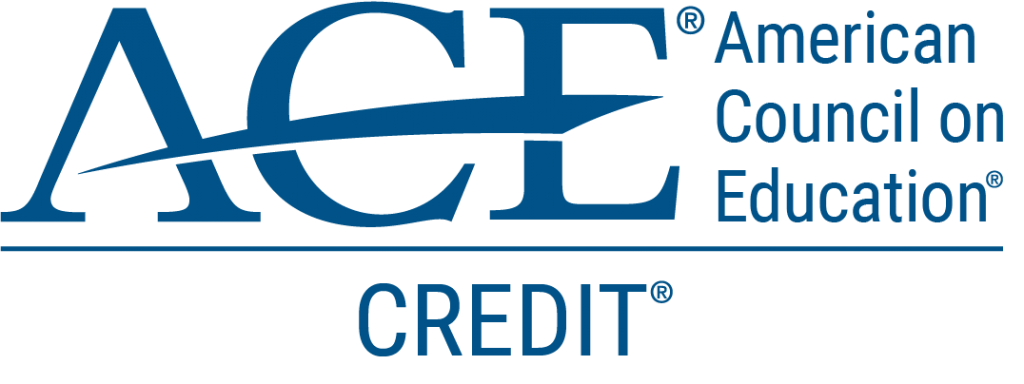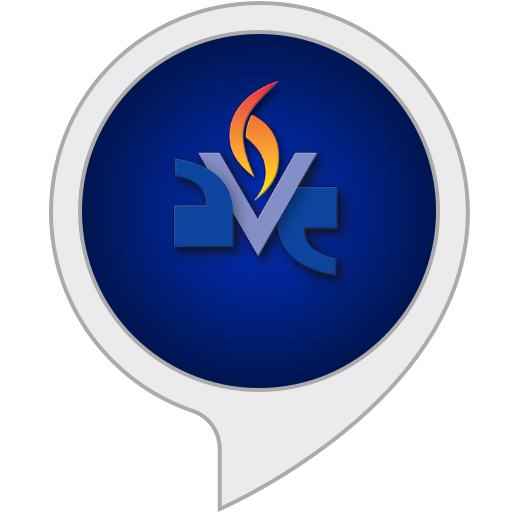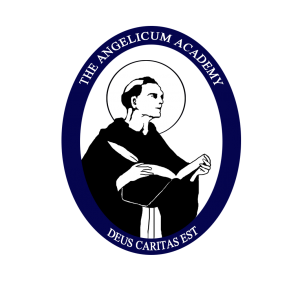The Angelicum Academy Great Books Program
(Also available in Spanish)
Overview
Choose from Three Tracks:
High School Track
Flip for DetailsHigh School Track
Description: The Great Books courses are interdisciplinary and cover material mainly in literature, history, philosophy, political science, theology, biography, poetry.
Includes: The Great Books Courses
Workload: Weekly readings, two 1,000 word essays per semester and two oral exams.
Credit: High School Level Credit
Tuition: $1,645 per year/$164.50 per month (10 months)
College Credit & AA/BA Degree Track
Flip for DetailsCollege Credit & AA/BA Degree Track
Includes:
The Great Books courses for 6 college credits per semester/12 per year.
Weekly readings, Online Learning Center Guides and Texts, Grading, two 1,800-word essays per semester, Semester Oral Exam.
Earn 48 College Credits for Four-year Great Books program
+ up to 14 more college course (42 credits) = 90 college credits.
Tuition: $2,999 per year or $299 per month (10 months)
+ $225 per additional college level credit.
Students in the College Credit and/or Associates Degree track may add courses for $675 each
(= $225 per credit), beginning the summer after their Freshman/Greek year.
Associates Degree by 12th Grade Bundle
Flip for DetailsAssociates Degree by 12th Grade Bundle
Includes:
Great Books Program (48 college credits), and either:
30 credits from Catholic Distance University for a total of 78 credits; or
12 Theology Online credits and 15 credits from Holy Apostles College for a total of up to 75 college credits and an Associate’s Degree
All of these credits also count towards a BA degree.
Weekly readings, Online Learning Center Guides and Texts, Grading two 1,500-word essays per semester, Semester Oral Exam.
Tuition: $3,975 per year/$397 per month (ten months)
Founded in 2000 A.D., the Great Books Program consists of four years (grades 9-12) of online classes meeting two hours per week to discuss weekly readings from the Great Books of Western Civilization. Discussions are led by two highly experienced moderators and a maximum of 20 students per class.
The classes are conducted in a Socratic, conversational format. Our method of teaching by conversationally discussing questions and answers in a spirit of mutual inquiry and discovery dates back to Socrates and is at the heart of the Great Books and classical traditions. It leads students to develop and practice the liberal arts of listening, speaking, reading and writing, as well as the habits of reflective, critical thinking. In this environment students begin to develop their thoughts and insights with care and confidence and learn how to express those ideas in the naturally delightful and liberating experience of genuine learning. In this way students gain understanding of their own natures and the nature of the world in which we all live. This makes for a better-examined and thoughtful life, a point on which all the sages who wrote the great books agree. Visitors are welcome to attend the classes to experience them. We have some audio samples of the classes posted below.
Students must be at least 14 years of age (or 9th grade) to enroll in the Great Books Program. However, these are not 9th-12th grade classes – they are for any age. There is no upper age limit. We often have college students and adults in classes, (who typically enroll in the “high school track” simply because they are not seeking college credit and prefer not to do the written work required for the college credit recommendation) though the great majority begin at age 14. The experienced moderators and the quality of the books read and discussed–which Dr. Adler called the “backbone of a liberal education”–invariably elevate the conversation and enlighten the intellects of participants. The specific readings selected are arranged chronologically beginning around Homer’s Illiad from Ancient Greece (1st year), and continue through ancient Rome (2nd year), the Middle Ages (3rd year), and conclude in our time (Modern, or 4th year). This is typical of Great Books programs at colleges and universities.
Enrollment in the Angelicum Academy is not required for admission to the Great Books Program. Nearly every reading in the program can be found online or at the library. Links to online texts are provided in the Student Portal. 9th grade and higher grade students transferring into the Angelicum Academy must enroll in the Great Books Program for at least the number of high school (9th-12th) years they are in the Academy (minimum being one year).
For students planning on attending a residential college (such as Belmont Abbey College, Benedictine College, The Collegium, Campion College (Aus.), the College Credit track is the best choice as they will have earned up to 60 transferable credits at home, and may complete their degrees on campus, usually in two years. Students looking to earn dual high school and college credit including enugh for an award of an AA or BA by 12th grade have two outstanding options explained in detail HERE. Currently (2024) our college credits cost from $200 to $250 per credit hour (including all tuition and fees) which is 40% to 85% less than tuition paid by current college students.
Choose from Two Modes:
Live
Flip for DescriptionLive (Synchronous)
Students meet online, weekly, for a two-hour discussion on the great books reading. Enrollment is limited to 20 students per class. Classes are hosted on Electa Live.Asynchronous
Flip for DescriptionRecorded (Asynchronous)
Students watch recorded discussions compiled from the past 20 years of our online Great Books Program classes. This is the best option for students unable to attend our live classes.High School Track Tuition
- 5% Payment in Full Discount = $1,562.00
- $164/mo for 10 Months on Payment Plan
College Credit & AA/BA Degree Program
- 5% Payment in Full Discount = $2,845.00
- $299/mo for 10 Months on Payment Plan
A.A. Degree Bundle Tuition
- 5% Payment in Full Discount = $3,776.00
- $395/mo for 10 Months on Payment Plan
Online Class Samples
This class sample is from the Greek year [the first year] of our Great Books Program. The students have read two of Plato’s dialogues, Crito and Phaedo, for this class. In the Crito, Socrates is awaiting execution in his prison cell. His friend Crito has come early one morning to try to convince Socrates to escape his cell [which he could do relatively easily] to avoid undergoing an unjust execution. He offers several arguments as to why this is the proper thing to do. The sample begins with the students responding to this question, “Which of Crito’s arguments do you find to be the most persuasive? Whichever argument you choose why do you choose it?” The moderators for the class were Dr. James Taylor and Mr. Stephen Bertucci.
An Interview with Current Students

Hi! My name is Bren. I live on my family organic farm in the Midwest and am a current student of The Great Books program enrolled in the final year: The Moderns Year. I have completed the Ancient Greek Year, the Ancient Roman Year, and the Middle Ages year. I have also had the privilege to assist in classes as a techie. Outside of studying I love to explore the wonders of nature, work as a freelance photographer and writer, play classical guitar, and serve at Bethlehem Farm.

Sarah Whitten lives in the Midwest on her family’s organic farm. She is a high school student and has completed two years of The Great Books Program: The Greeks Year and the Romans Year. She is currently participating in the Middle Ages Year. When she is not studying or engaged in a Great Books discussion, you may find her hiking, playing soccer with her siblings, perplexedly scribbling on a chalkboard while doing math (for fun), or curled in a cozy corner with a cup of tea and an old book.
If you wish to get in touch with us, write us at info@angelicum.net with “Attn: Sarah and Bren” in the subject line!
Testimonials
I have also been thinking that it may be good for you to know how much I appreciate the Great Books Program both for what it is and for how it is helping me personally.
I don’t know of any other course that is ennobling (and I think this is a goal rather than an accident of the programme).
Nor one that turns on asking so many such good questions and that encourages speculation. All the courses I have been to so far have discouraged it – as putatively opposed to precise, scientific, controlled or “critical” thinking. I have always had an inkling that there in fact is no thinking without speculation and that speculation is not opposed to logic or trespassing against reason or modesty. I remember that in the colleges in my area (heavily influenced by German philosophy) it is illegitimate to speculate ( even to talk sometimes) about themes like happiness, suffering, meaning of life. One may legitimately allow oneself an interpretation of what say, Plato, Aristotle, Kant or Wittgenstein have said about it . But why on earth should anyone be interested in what big minds have said about happiness if it is silly to look for the truth about it?
Reading and discussing with you is thus healing me from my mental “cramps” or anxiety. The trust I find in both the class and in the assignments. in the existence of permanent truth about life to be sought and found, is liberating. And such joy!
And we harvest important conclusions . I am only sad I didn’t find you years and years earlier. (I can’t remember how I did find you in fact, for that matter. It must have been through some conservative Catholic websites).
Last, yet first I am so glad to have met the community – the moderators and my dear fellow students. In the best way, in a way, listening to their thoughts. I have never experienced so many and such good doctors looking after a flock of such young students simply for the students´ good (without an ambitious certified sheet of paper coming out from it).
I am getting used to English at last and regaining my normal trust in speculation. I am not so ashamed now of poor attempts for answers, either. More trust and hope I have gained in this community.
My husband and I have been so thrilled with the Angelicum program. I went to St Johns College and it’s so exciting to see my kids being educated classically at such an early age. Thank you!!!!
Additional Resources
Great Books Summer Program
Our annual Great Books Summer Program is held in Colorado Springs, CO, and consists of three days of discussions and fellowship. Our 2021 Great Books Summer Program is set for July 7-9 at the Penrose House.
Accreditation
 The Great Books Program and the Theology Online courses were reviewed by the American Council on Education college credit recommendation service (ACE CREDIT), which recommended the Great Books Program for 6 college credits for each semester of the program – 48 college credits in all. ACE CREDIT recommended the Theology Online courses for three credits per course, 12 college credits in all. All 60 such credits are accepted for transfer by Holy Apostles.
The Great Books Program and the Theology Online courses were reviewed by the American Council on Education college credit recommendation service (ACE CREDIT), which recommended the Great Books Program for 6 college credits for each semester of the program – 48 college credits in all. ACE CREDIT recommended the Theology Online courses for three credits per course, 12 college credits in all. All 60 such credits are accepted for transfer by Holy Apostles.
Those 60 credits are also applicable towards Holy Apostles Bachelor’s degrees (B.A.s) in Theology, Philosophy, English in the Humanities, and History in the Social Studies.
Approved for College Credit by American Council of Education
Cardinal Newman Society Recommendation.


Ave Maria Radio Interview
KRESTA IN THE AFTERNOON with Angelicum President, Patrick CarmackKRESTA IN THE AFTERNOON with Angelicum President, Patrick Carmack
Please note: The Interview with Patrick Carmack runs approximately from minute 8:25 to 18:00.

